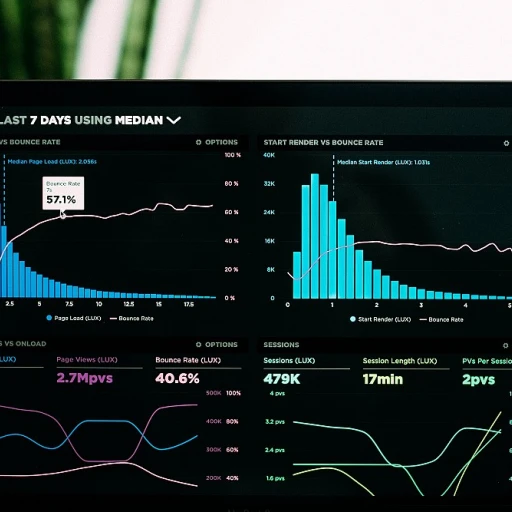The Intricate Dance of AI and Data Privacy in Modern SEO
AI's Role in Shaping Modern SEO Practices
In the digital age, the synergy between Artificial Intelligence (AI) and search engine optimization (SEO) has revolutionized how we interact with the vast expanse of information available online. SEO strategies have always aimed to place websites at the forefront of search engine results, but with the advent of AI, the precision and effectiveness of these strategies have soared. By harnessing the power of machine learning and complex algorithms, AI can analyze vast datasets and search patterns to optimize website visibility in real-time, paving the way for an SEO landscape that is more dynamic and responsive than ever before.
Navigating the Data Privacy Conundrum
With the enhanced capabilities of AI in SEO comes a significant concern—the intricate balancing act of data privacy. The personalization of search results, an outcome of AI's data-driven insights, has raised the stakes in protecting user privacy. The crux of modern SEO now lies in not just elevating website rankings but doing so while navigating the complexities of data security and user consent. This has led to a nuanced debate on the ethical use of personal data and the overarching responsibility of marketers to ensure privacy is not compromised in the pursuit of SEO excellence.
The Intersection of SEO and Data Protection Regulations
The symbiotic relationship between AI and SEO must operate within the boundaries set by data protection regulations, such as the General Data Protection Regulation (GDPR) and California Consumer Privacy Act (CCPA). These legislative frameworks have recalibrated the role of AI in SEO, necessitating a shift towards transparent and user-centric practices. Marketers must now be adept not only at optimizing content but also at fortifying their methods with robust privacy protections that respect user consent and the safeguarding of personal information.
As we delve deeper into the role of AI in ethical optimization and the balance of personalization with privacy, we find that implementing practical solutions for ethical AI-driven SEO is not only a recommendation but an imperative. The future of SEO hinges on the ability of professionals to anticipate and adapt to the evolving standards of AI ethics, ensuring that the pursuit of top rankings consistently aligns with respect for user privacy.
Ethical Optimization: Balancing Personalization with Privacy
Ethical Guidelines in the Age of Digital Personalization
As search engines increasingly harness artificial intelligence (AI), the question of ethical optimization comes to the forefront. The crux of this ethical debate lies within the balance of offering personalized experiences while respecting data privacy. Modern SEO strategies focus on delivering content that resonates with user intent, yet these strategies must also align with ethical standards that protect personal data.
The evolution of AI in SEO has seen algorithms become more adept at predicting user behavior and preferences. This presents a paradox where SEO optimization becomes more effective, yet more intrusive. The concept of creating an individual's digital footprint through personalized content recommendations can clash with privacy concerns, leading to a sharp debate among marketers, privacy advocates, and legal experts.
Case studies exemplify companies that have successfully navigated the thin line between personalization and privacy.
- Search engines using anonymized data to tailor search results without compromising individual identities.
- Content platforms implementing ethical pop-ups that inform users about how their data will be used for personalization, thereby fostering transparency.
Experts in the field have been vocal about setting industry benchmarks for when and how personal data should be used. According to recent surveys, an overwhelming majority of online users demand greater control over their personal information, suggesting the need for a consent-based optimization model.
Implementing Consent-Based SEO Strategies
Advancing towards a model that prioritizes user consent in AI-driven SEO strategies is crucial. User consent forms the backbone of ethical SEO, ensuring users are aware of what data is collected and how it will be utilized. SEO experts are now endorsing a transparent approach, moving away from the murky waters of assumed consent.
For example, cookie consent banners, while once considered a nuisance, are now viewed as essential tools in honoring user privacy. Metrics from consent-based models indicate that users are more likely to trust and engage with websites that make their privacy policies clear and concise.
In the effort to maintain privacy while still leveraging AI for SEO, it is also essential for professionals to stay updated with the latest in data protection regulations such as the GDPR. This legislation not only mandates the elevation of privacy standards but also serves as a guideline for ethical optimization practices.
The Shift to Privacy-Centric SEO
The push towards a privacy-centric SEO approach reflects the changing landscape of user expectations. Search engine algorithms are already shifting to prioritize sites that adhere to stringent privacy measures. Site rankings now factor in encryption, secure data transmission, and transparent privacy policies—a clear nod to the importance of data security in SEO efficacy.
Industry leaders advocate for the integration of privacy by design into SEO strategies, which inherently considers data protection from the outset of any digital campaign. This suggests a fundamental transformation in how SEO is approached—the focus is no longer just on climbing the search engine ranks but on earning user trust through responsible data practices.
Recent statistics show a growing preference for brands that value user privacy, which reinforces the concept that ethical SEO strategies are essential for long-term business success. With AI's growing prominence in SEO, the industry is at a critical juncture to redefine ethical standards that harmonize the drive for personalization with the imperative for privacy.
AI's Data Appetite vs. User Consent: Where Should We Draw the Line?
Practical Solutions for Ethical AI-Driven SEO
Implementing Transparent AI Strategies in SEO
In the realm of search engine optimization, the implementation of AI-driven strategies must be transparent and ethical. A vital step in achieving this is for SEO professionals to embrace the use of AI in a way that respects user privacy while optimizing search performance. This involves clear communication about how data is collected and used, offering users the option to opt-in or out of data collection, and adhering strictly to data protection regulations, such as GDPR in Europe.
For example, SEO tools powered by AI can enhance keyword research and predictive analytics while keeping user data anonymous. By leveraging pattern recognition algorithms, these tools can identify search trends without compromising individual data privacy.
Opt-In Models: Respecting User Choice
Central to the ethical use of AI in SEO is the concept of user consent. Transitioning from default data collection to an opt-in model empowers users to decide if they want to participate in data-driven personalization. This not only adheres to best practices for data privacy but also builds trust with users who are more privacy-conscious.
A successful example of this is when search engines offer personalized search results while also providing the option to switch off personalization settings, thereby giving users control over their data.
Crafting Privacy-Centric Content Strategies
To maintain a balance between effective SEO and data privacy, SEO experts must develop content strategies that provide value without infringing on privacy. Crafting high-quality, informative content that targets relevant keywords is still the cornerstone of SEO and does not require invasive data practices.
By focusing on topics of genuine interest and relevance to users, and employing AI for general market analysis rather than personal data mining, SEO professionals can achieve high rankings and fulfill user intent. This approach not only respects user privacy but also reinforces domain authority and builds a positive brand reputation.
Investing in Ethical AI Tools and Training
Fostering an ethical SEO culture starts with investing in AI tools and solutions that prioritize data privacy. Many AI-powered SEO platforms are fine-tuning their algorithms to provide insights without storing personal information. It is equally important to invest in training for SEO teams to ensure they are aware of how to use AI responsibly and understand the importance of data privacy.
Industry experts often highlight the significance of using tools in compliance with ethical guidelines—a statistic by Gartner suggests that brands that put privacy first are set to gain a competitive advantage.
Future-Proofing SEO: Navigating the Evolving Landscape of AI Ethics
The Uncharted Territory of AI Ethics in SEO
As we dive into the future of search engine optimization (SEO), the intersection of artificial intelligence (AI) and data privacy legislation is increasingly becoming a critical topic. The relentless advancement of AI has redefined the SEO landscape, making it imperative for digital marketers and SEO strategists to keep pace with these changes. Yet, as we've explored, the hunger for data by AI systems to personalize user experiences must be balanced with the rights of individuals to protect their personal information.
Staying Ahead with Adaptive SEO Strategies
To future-proof SEO efforts, it's essential to adopt adaptive strategies that respect user privacy while leveraging AI's power for optimization. This entails ongoing education about emerging data privacy laws and technological advancements. For example, adapting to new forms of search queries, such as voice or visual search, requires not just technical adjustments but also a nuanced understanding of user intent and the ethical implications of data collection in these contexts.
Furthermore, investing in AI-powered tools that prioritize user consent and anonymization can enhance personalization without infringing on privacy. By working with solutions that operate within the ethical boundaries of data usage, organizations can build trust with their audience, a currency that is invaluable in today's digital economy.
Embracing Transparency and Building Trust
Transparency in AI algorithms and data practices can lead to stronger relationships with users, who are becoming more skeptical and informed about their digital footprint. Publicly sharing the steps taken to safeguard privacy, such as clear consent forms, user-friendly privacy settings, and detailed disclosures about AI's role in content curation, will foster trust and demonstrate a commitment to ethical SEO.
It is by forging a path that intertwines efficiency with ethics that companies will not only thrive in rankings but also in reputability. With every business yearning for the top spot on search engine result pages (SERPs), those who have built a fortress of trust around their brand will likely wear the crown of loyalty in the long run.
Conclusion: Ethical AI is the New Frontier in SEO
In conclusion, as we evolve with the digital tide, the integration of AI in SEO will be colored by how well we navigate the ethical quandaries it presents. Protection of user data, consent-driven marketing strategies, and transparent AI operations are not just desirable but necessary for sustainable growth. By anticipating changes and proactively establishing ethical guidelines, businesses can ensure that their presence in cyberspace is both prominent and principled. The future of SEO is not just about understanding algorithms but also about appreciating the human element behind every search query.









